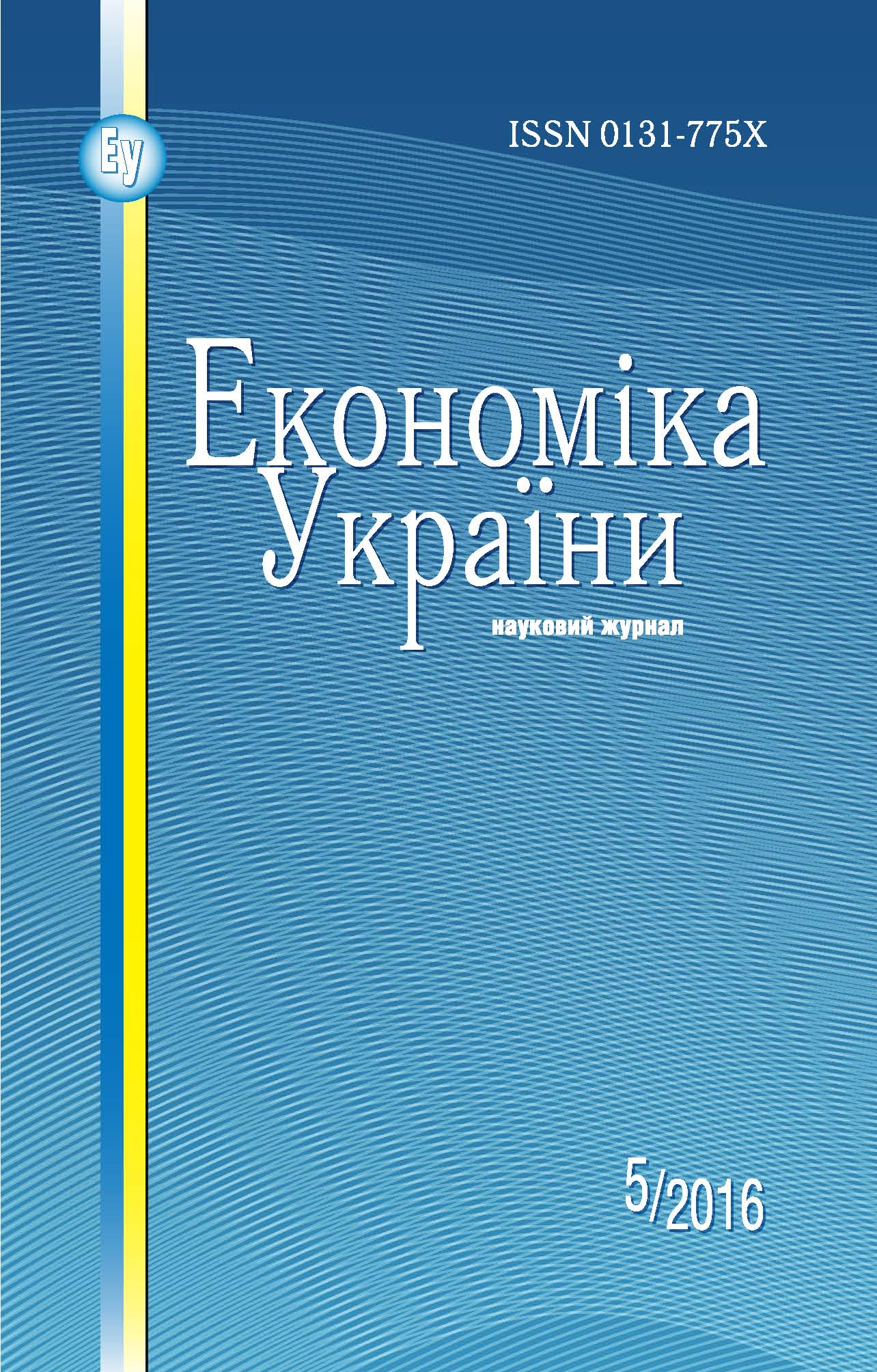ABOUT INNOVATIONS AND STRATEGIC PRIORITIES ON THE WAY OF THE UNION OF THE “INVISIBLE” AND “VISIBLE” HANDS
Keywords:
economic theory, marginal economy, model of market, innovations, strategy, plan-controlled economyAbstract
The results of socio-economic reforms in Ukraine in the post-Soviet period are presented. During the analysis of the model of market, which is introduced in the country, the conclusion is made about its inadequacy to challenges of the present time. This hampers the driving mechanisms of the national economy, paralyses its development, reproduces the socio-economic inequality, and leads to the unavoidable break-up.
The connection of the modern economic crisis with the crisis of the neoliberal mainstream of the economic science is revealed, and the necessity of new economic approaches with regard for national-specific and world-wide progressive tendencies is substantiated.
A new theory involving the real evaluation of a state of the national economy in our country will allow one to develop a scientifically grounded policy, which will overcome the wrong myths about the exceptional efficiency of private property and market and will join the “invisible” and “visible” hands – market and state – for the construction of a new economic system.
The necessity of a scientific substantiation of the long-term strategic development of Ukraine is proved. In it, two groups of elements must be conserved and developed. The first must include the specific elements, which are characteristic of our past and are progressive for the future steps of the civilizational development. The second group will be composed of elements, which are characteristic of the world civilization and have positively manifested themselves in developed countries.
The most important attribute of a qualitatively different socio-economic system should become the stimulation of the scientific-technical progress of a person him/herself and him/her qualified creative work.
References
Reinert E.S. Increasing poverty in a globalised world: Marshall plans and Morgenthau plans as mechanisms of polarisation of world income, available at: www.networkideas.org/featart/aug2003/Inc_Pov_Globalised_World.pdf.
Zveryakov M.I. Teoreticheskie Problemy Formirovaniya Natsional’noi Ekonomicheskoi Sistemy [Theoretical Problems of Formation of the National Economic System]. Odessa, Astroprint, 2012 [in Russian].
Kolodko G.W. Globalizatsiya, Transformatsiya, Krizis – Chto Dal’she? Vvodnaya glava R.S. Grinberga [Globalization, Transformation, Crisis and What Next?], Introductory chapter by R.S. Grinberg. Moscow, Magistr, 2015 [in Russian].
Grinberg R.S., Rubinshtein A.Ya. Individualizm&Gosudarstvo: Ekonomicheskaya Dilemma [Individualism&State: Economic Dilemma]. Moscow, Ves’ Mir, 2013 [in Russian].
Piketty T. Kapital v ХХІ Veke [Capital in the Twenty-First Century]. Moscow, ADMarginem Press, 2015 [in Russian].
Toffler A. Shok Budushchego [Future Shock]. Moscow, AST, 2004 [in Russian].
Toffler A. Tret’ya Volna [The Third Wave]. Moscow, AST, 2004 [in Russian].
Kuzyk B.N., Yakovets Yu.V. Rossiya-2050: Strategiya Innovatsionnogo Proryva [Russia-2050: Strategy of Innovative Break-Through]. Moscow, Ekonomika, 2005 [in Russian].
Yakovets Yu.V. Global’nye Ekonomicheskie Transformatsii XXI Veka [Global Economic Transformations in the XXI century]. Moscow, Ekonomika, 2011 [in Russian].
Gal’chinskii A.S. Marks i Sovremennyi Mir: Gumanisticheskaya Dominanta [Marx and Modern World: Humanistic Dominant]. Kiev, Lybid’, 2015 [in Russian].
Heyets V.M. Institutsional’naya obuslovlennost’ innovatsionnykh protsessov v promyshlennom razvitii Ukrainy [Institutional conditionality of innovative processes in Ukraine’s industrial development]. Ekonomika Ukrainy – Economy of Ukraine, 2014, No. 12, pp. 4–19 [in Russian]. (р. 3–16).
Downloads
Published
How to Cite
Issue
Section
License
Copyright (c) 2024 Economy of Ukraine

This work is licensed under a Creative Commons Attribution-NonCommercial-NoDerivatives 4.0 International License.



